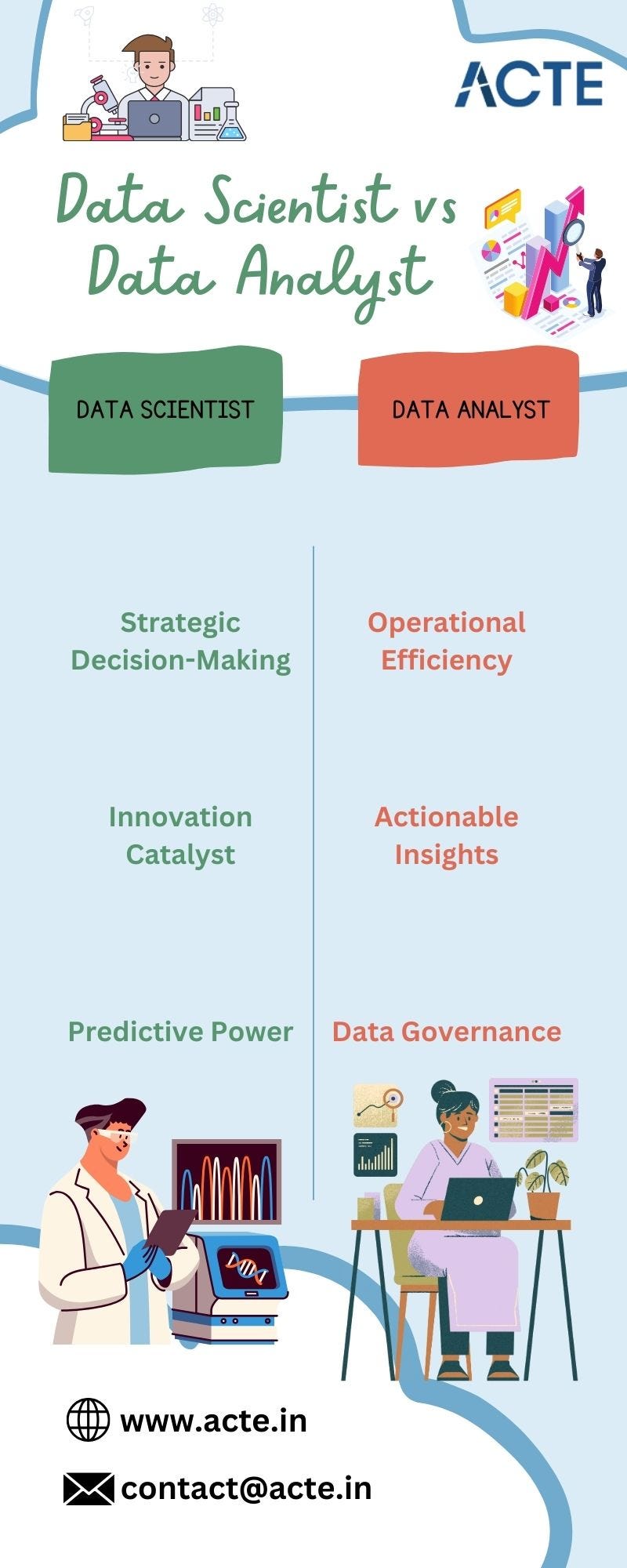Deciphering the Value: Data Scientist vs. Data Analyst
In today's data-centric landscape, the roles of Data Scientists and Data Analysts are pivotal. But which holds greater value? Let's explore this comparison further. If you want to advance your career at the Data Science Training in Pune, you need to take a systematic approach and join up for a course that best suits your interests and will greatly expand your learning path.

Data Scientist: Mastering Data Sorcery
Imagine a sorcerer wielding spells to unearth insights from vast data realms. That's the essence of a Data Scientist. Armed with coding prowess, statistical wizardry, and business acumen, they decode complex datasets to reveal hidden treasures. For those looking to excel in Data Science, Data Science Online Training is highly suggested. Look for classes that align with your preferred programming language and learning approach.
Skills and Responsibilities:
Advanced Analytics: Data Scientists harness sophisticated statistical techniques like machine learning to forecast trends and offer recommendations.
Programming Fluency: Proficient in languages such as Python or R, they utilize tools like TensorFlow and PyTorch for deep learning.
Business Insight: Data Scientists grasp not just data but also its business implications, enabling them to furnish actionable insights.
Value Proposition:
Strategic Guidance: By discerning patterns and trends, Data Scientists empower organizations to make strategic decisions grounded in data.
Innovative Catalyst: They foster innovation by crafting algorithms and models that optimize processes, elevate products, and personalize experiences.
Predictive Prowess: Armed with predictive analytics, Data Scientists equip businesses to anticipate future trends and adapt preemptively.
Data Analyst: Data Sleuthing at Its Finest
Picture a sleuth meticulously assembling clues to crack a case. That's the essence of a Data Analyst. These professionals dissect data to address specific inquiries, furnishing insights that underpin decision-making.
Skills and Responsibilities:
Data Cleansing and Visualization: Data Analysts transform raw data into digestible formats using tools like SQL, Excel, or Tableau.
Reporting and Interpretation: They craft reports and dashboards to convey findings to stakeholders, translating intricate data into actionable insights.
Problem-Solving: Data Analysts tackle targeted business challenges, from optimizing marketing endeavors to enhancing operational efficiency.
Value Proposition:
Operational Optimization: By analyzing historical data, Data Analysts pinpoint inefficiencies and propose enhancements, fostering cost savings and streamlined processes.
Insightful Guidance: They deliver timely insights driving daily decision-making, enabling businesses to stay nimble and responsive.
Data Integrity: Data Analysts play a pivotal role in upholding data quality and integrity, bolstering trust in organizational data assets.

Unveiling the Essence of Data Roles
Which role reigns supreme: Data Scientist or Data Analyst? The answer hinges on the unique strengths each role brings to the fore.
Data Scientist:
- Valuable for organizations embracing advanced technologies and predictive analytics to drive innovation and strategic decision-making.
Data Analyst:
- Indispensable for businesses seeking actionable insights, operational efficiency, and robust data governance practices.
In essence, both roles are indispensable facets of a data-centric organization. While Data Scientists unlock the potential of predictive analytics and innovation, Data Analysts lay the groundwork for actionable insights and operational excellence. Together, they form an inseparable duo, propelling value and shaping the future of data-driven decision-making.